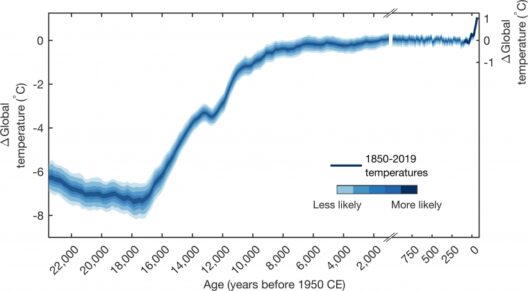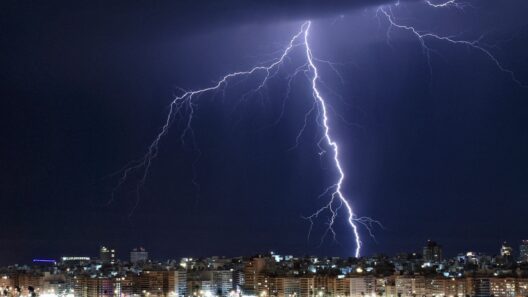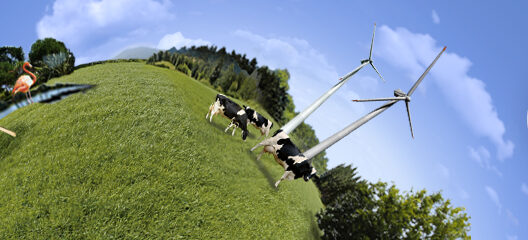Humans and the planet share an intricate relationship, akin to a delicate dance where each step could either harmonize the partnership or lead to a calamitous misstep. This metaphor stems from the realization that our actions, whether deliberate or inadvertent, ripple across the Earth much like a pebble thrown into a still pond — creating waves that affect ecosystems, weather patterns, and ultimately, the very fabric of life itself. The metaphor of this dance illustrates the precariousness of our existence and the dire need for awareness in our every movement.
The industrial crescendo of the past few centuries has ushered in unprecedented advancements but at a profound cost. The ceaseless extraction of resources has turned Earth into a veritable sacrifice zone. Forests, once resplendent with the vibrancy of life, now succumb to chainsaws, giving way to desolate landscapes devoid of bio-diversity. The metaphorical forest serves not just as a grove of trees, but as a living partner in our intricate ballet. Each tree, a dancer, contributes to the ensemble that forms our atmosphere, stabilizes our climate, and nurtures myriad species — including ourselves. Yet, with every tree felled, the dancers falter, leading to a breakdown in this finely tuned choreography.
As the curtain rises on climate change, the veracity of scientific discourse reveals an alarming truth: human activities are the pervasive catalysts of this crisis. The uncomplicated act of burning fossil fuels is analogous to igniting a match within a tinderbox. The combustion releases carbon into the atmosphere that dances in ominous waltz with the already warming planet. The resulting increase in greenhouse gases is not merely an environmental concern; it metamorphoses into an existential threat, simmering beneath the surface, waiting to unleash its ferocious power.
Against this backdrop of escalating threats, one must ponder—are we fueling our own destruction? The answer, resoundingly clear, is yes. Our incessant appetite for convenience propels industries to prioritize short-lived gains over long-term sustainability. This is brilliantly illustrated in the fashion industry, a realm often overlooked. Fast fashion, while aesthetically alluring, encapsulates the antithesis of sustainability, promoting a cycle of overproduction, overconsumption, and ultimately, overabundance of waste. The garments, which could be perceived as fleeting moments of joy, translate into mountains of textile waste, polluting rivers and oceans and effacing habitats for countless organisms.
The oceans themselves, our blue planet’s vital organs, reflect back our choices. Envision them as colossal mirrors capturing the essence of our decisions; they grow increasingly marred. Plastic waste, likened to a devastating stalker, ensnares marine life in a web of entrapment and destruction. Sea turtles mistake plastic bags for jellyfish, while birds ingest indigestible debris, leading to their slow demise. Each piece of plastic is not just an isolated incident but a testament to our negligence, highlighting the urgent need for systemic change.
The astute observation that the environment is complicit in our survival is a stark reminder of our own precariousness. Earth possesses the astounding ability to regenerate, yet it is drowning under the weight of human pursuing short-term pleasure. Just as a garden requires care and nurturing, so, too, does our planet. Absent mindfulness, we risk rendering it barren — a juxtaposition of vibrant ecosystems to desolate wastelands.
Moreover, the metaphors of warmth and cold are worth contemplating. The warmth of summer has become increasingly scorching, an unmistakable cry echoing the repercussions of climate change. Conversely, winter chill becomes less pronounced, as the once reliable season loses its vigor. Patterns shift, and species that thrived for eons are now scrambling to adapt. The upheaval seems like a macabre theatrical production where roles are reversed, creating chaos where once there was balance. In this dramatic irony, the audience must heed the warnings emanating from the stage before it is too late.
Years of neglect and apathy, however, have not rendered humanity impotent. There lies an opportunity for redemption, a path shining brightly amid darkness. Awareness is the first step in this transformative journey towards sustainability. Individuals wield significant power; collective action can lead to monumental change. Initiatives such as clean energy, conservation, recycling, and advocacy weave together a tapestry of hope. The metaphorical phoenix could rise from the ashes of our past missteps, propelling humanity toward a future grounded in mindfulness and respect for the planet.
As the intricate dance between humans and the planet continues, we stand at a crossroads. Ignorance and disregard threaten to sever the partnership irrevocably, while enlightenment and action hold the transformative potential to heal. We are each dancers in this grand performance, and each movement must be executed with precision and purpose. Awareness is key, yet action is paramount. Together, we can opt for a harmonious dance that respects the vitality of our Earth, ensuring that future generations inherit not the ashes of our folly but the lush garden of possibility. The choice lays in our hands, a testament to our potential to propel or impede our own survival, determining whether we fuel our destruction or nurture our shared haven.








